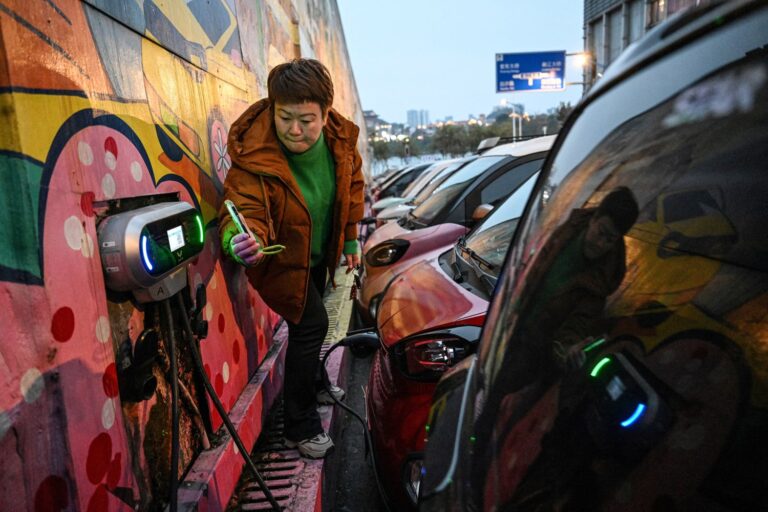LIUZHOU, China — Liuzhou may be a small city by Chinese standards, but it plays a big role when it comes to the country’s booming electric vehicle industry.
Long a longtime auto-manufacturing hub in the southwestern Guangxi region, this city of 4 million people has positioned itself as the EV capital, and with good reason: Last year it produced 500,000 EVs of all kinds, and has the capacity to produce about three times that amount.
The government-backed industrial boom has raised concerns about China’s “overcapacity” in electric vehicles and other clean-energy products, leading officials in the U.S. and other Western countries to impose tariffs aimed at making Chinese products less competitive abroad. But Chinese EV makers say they are just playing to their strengths.
“Liuzhou is a very competitive city for manufacturing new energy vehicles,” said Yu Hongchao, who manages a factory for Chinese electric car maker Wuling New Energy.
“First, labor costs are very low. Second, logistics costs are low,” he said in an interview in Liuzhou last month. “Third, the industrial base is good. Fourth, there are a lot of talented people from industry here.”
Liuzhou is home to five major state-owned enterprises. Automakers including Wuling’s parent company, Guangxi Automobile.
One of them, FAW Group, is known for making the Hongqi luxury car used by the government elite, while SAIC, in a joint venture with Guangxi Automobile and US carmaker General Motors, makes a popular $4,000 EV.
Liuzhou is also home to about 300 other companies involved in the EV supply chain, helping speed up production and reduce costs.
Chinese-made EVs are rapidly gaining popularity in China because they are relatively cheap, and are more commonly seen on roads there than in the U.S. In contrast, U.S. EV makers such as Tesla are focusing on premium models that are out of reach for many consumers.
Experts say the price difference is due in part to years of subsidies and other support from the Chinese government.
Total aid from 2009 to 2023 amounts to about $231 billion, according to a blog post on Thursday by Scott Kennedy, senior adviser and president for China business and economics at the Center for Strategic and International Studies, a Washington think tank.
The support, which Kennedy called a “very conservative estimate,” came mostly in the form of buyer rebates and sales tax exemptions, but also included government funding for research and development, government purchases of EVs, charging stations and other infrastructure.
Thanks to government support and the resulting fierce competition in the industry, China’s major EV manufacturers have made great strides by combining low prices with high quality.
That has alarmed officials in the U.S., where Chinese-made EVs are not yet available.
The Biden administration last month announced plans to increase tariffs on Chinese-made electric vehicles and other clean energy products, including a 100% tariff on electric vehicles and a 25% tariff on EV batteries, citing concerns that Chinese companies could flood the U.S. with goods at cheaper prices than American competitors.
The European Commission followed suit last week, announcing additional tariffs of up to 38% on Chinese-made EVs.
China has criticized the Western tariffs as protectionist, damaging economic ties and going against global interests in tackling climate change, and there are already signs of retaliation.
China’s Commerce Ministry said Monday it was launching an anti-dumping investigation into European pork products, and Chinese state media reported Wednesday that Chinese automakers have asked Beijing to raise tariffs on gasoline-powered vehicles imported from Europe.
While Liuzhou’s production is currently focused almost entirely on serving domestic consumers, the city is beginning to look to overseas markets, including the United States.
Yu, whose company launched its overseas unit last month, said the U.S. tariffs were inconsistent with free market principles.
“Whether the tariffs are 25 percent or 100 percent, they’re not going to affect us manufacturers as much as they’re going to hurt American consumers,” he said. “If consumers need the products, they’re going to buy them even if the price goes up.”
He also dismissed U.S. accusations of excess EV production capacity in China as “baseless.”
“I think if our costs are low because of our scale and our prices are competitive, then anyone can compete,” he said.

